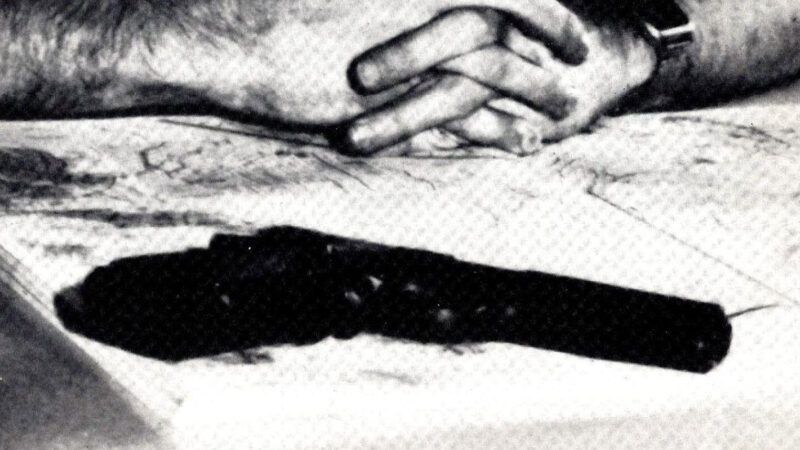Neutron Gun Reloaded
Gerry Reith's raw, paranoid, apocalyptic fables were shot through with distrust for just about every institution around.

There was a time, not that many decades ago, when ranting loners swapped their ideas not with tweets and YouTube videos but with stamps and Xerox machines. One of those ranters was Gerry Reith, whose raw, paranoid, apocalyptic fables were shot through with distrust for just about every institution around.
Reith lived, far too briefly, in a distant territory called the '80s zine scene, where creative weirdos traded self-published magazines, homemade fliers, and envelopes stuffed with art. He fluctuated between the ironic paranoia of the Church of the SubGenius and the honest-to-God paranoia of a man wary of "Masonic mind control techniques"; he was active in the Wyoming Libertarian Party but also had larger radical dreams of escaping a "global totalitarian culture" that was "trivializing" our lives.
In 1985, shortly after his suicide at age 25, a selection of Reith's stories appeared in a slim small-press book called Neutron Gun. Now another small press, Nine-Banded Books, has published a wider collection of his stories, essays, posters, and poetry, called Neutron Gun Reloaded.
As with many outsider artists, Reith's best work eschews any subtlety and instead embraces a sort of primitive surrealism. "The Roots of Modern Terror" imagines the state as a bus flying down a dark, wet, and winding mountain road with a half-blind drunk at the wheel; some passengers are demanding a new driver, but no one is willing to stop the bus. In "Kings of Orient, Dresden, D.C.," the protagonist stumbles through a burning building until he meets a soldier, who explains that the government is burning the city to prevent unplanned fires from breaking out. "Funny about the planning center," the soldier adds. "Computer printouts keep catching on fire."
